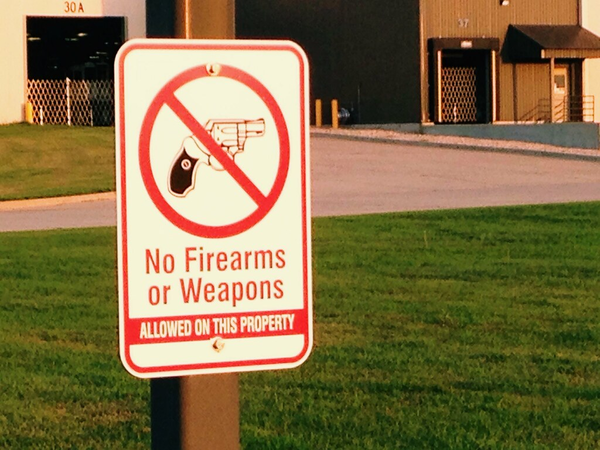
–>
November 5, 2022
Two trends that are reflected in recent state and federal gun legislation. One trend stems from the New York State Rifle and Pistol Ass’n Inc. v Bruen ruling in June, the other from the New York’s Concealed Carry Improvement Act passed in response to Bruen.
‘); googletag.cmd.push(function () { googletag.display(‘div-gpt-ad-1609268089992-0’); }); }
Bruen’s Domino Effect
In Bruen, the U.S. Supreme Court found that New York State’s concealed carry law was unconstitutional because it required “proper cause” for an individual to obtain a concealed carry permit. As a result, a new precedent was set for Second Amendment legislation, with many states’ gun control laws now challenged. The National Association for Gun Rights has sued several states and cities to end their assault weapons bans, including the Illinois cities of Highland Park and Naperville along with the states of Connecticut, Massachusetts, Colorado, and Hawaii. The Connecticut Citizens Defense League, along with two former Connecticut corrections officers and a firearms instructor, have also filed a lawsuit against the Connecticut assault weapons ban. In Colorado, a judge recently blocked an assault weapons ban following a lawsuit filed by the Rocky Mountain Gun Owners. Bruen was also cited by a judge in West Virginia who abolished a federal law requiring firearms to have serial numbers, and by a judge in Texas who ruled that citizens under criminal indictment retain the right to bear arms.
New York’s Concealed Carry Improvement Act’s Domino Effect
‘); googletag.cmd.push(function () { googletag.display(‘div-gpt-ad-1609270365559-0’); }); }
However, Bruen’s no-tolerance stance did not deter Governor Kathy Hochul in her push for more gun control legislation. In July, Hochul signed the Concealed Carry Improvement Act (CCIA). This legislation makes it illegal to carry a gun in public places such as churches, schools, subways, and Times Square. It also makes issuing concealed carry permits dependent on completion of hours of training, along with the review of every applicant’s social media activity from the past three years. Gun rights advocates immediately won a temporary restraining order against New York’s new law, but a federal appeals court lifted the restraining order a few weeks ago.
A California bill similar to New York’s CCIA failed to pass the legislature by one vote. In early October, New Jersey unveiled its version, which includes stipulations such as disqualifying conceal carry applicants who have past restraining orders or other “character of temperament concerns,” (similar to the CCIA’s “good moral character” requirement which has been accused of having racist roots) and requirements for permit holders to carry insurance to protect against accidental discharge.
As we approach the 2022 midterm elections, Biden once again amped up calls to Congress to pass an assault weapons ban, Stacey Abrams vowed to roll back Georgia’s permitless firearms carry law, and candidates like Illinois senator Tammy Duckworth and Connecticut governor Ned Lamont support assault weapons bans. Politicians such as Governor Lamont have also recently referred to the overwhelming public support of gun control.
Bruen’s Impact on the “Interest Balancing Test”
Mark Oliva is the Managing Director of Public Affairs for the National Shooting Sports Foundation (NSSF). Oliva points out that the deepest implication of Bruen was the ruling’s explicit refusal to allow the interest-balancing tests that courts have been using for years when ruling on gun legislation.
 Oliva says the interest-balancing test came from a dissent (not the decision itself) to the 2008 Heller decision. “…but many of the courts are still using this interest balancing test… does it infringe upon your individual rights, and then does the government have the ability to [infringe on the Second Amendment] in the name of public safety?” Bruen ruled that this two-part test is unconstitutional, and “the interest balancing test is the Second Amendment itself, and Heller has already previously ruled that the Second Amendment is the right of the individual, not the right of the government… which is what we had understood that right to be all along.”
Oliva says the interest-balancing test came from a dissent (not the decision itself) to the 2008 Heller decision. “…but many of the courts are still using this interest balancing test… does it infringe upon your individual rights, and then does the government have the ability to [infringe on the Second Amendment] in the name of public safety?” Bruen ruled that this two-part test is unconstitutional, and “the interest balancing test is the Second Amendment itself, and Heller has already previously ruled that the Second Amendment is the right of the individual, not the right of the government… which is what we had understood that right to be all along.”
‘); googletag.cmd.push(function () { googletag.display(‘div-gpt-ad-1609268078422-0’); }); } if (publir_show_ads) { document.write(“
Are Assault Weapons the Common Denominator of Mass Shootings?
What does Oliva think of the push from lawmakers for bans on assault weapons and high-capacity magazine bans? “…the rifle I carried in the Marine Corps is not the same rifle that is in my gun safe today, they are two different rifles. My rifle has never been involved in any crime, what we’re talking about is people with serious mental health issues that are going unaddressed and unreported.”
Oliva points to examples such as the Parkland school massacre, where “there were 43 different points of inflection where authorities could have been involved and could have stopped it.” This includes intel from the FBI, who has admitted that they failed to follow up on two tips regarding the Parkland shooter.
Is Gun Control Really a Top Issue for Voters?
Is gun control a popular issue for voters? Poll data says otherwise. “Some of these polls that are looking at what voter’s priorities are, gun control is actually at the bottom of the list. The top issues for voters are the pocket issues, the tabletop issues, it’s the inflation, it’s the economy, it’s jobs, it’s crime in their communities.” Gun control groups such as Everytown for Gun Safety are now actually using some of the funds they would usually allocate to gun control to instead amp up their messaging about other issues such as abortion.
Statements by lawmakers or media on the popularity of gun control can often be misleading. For example, gun control could simply mean background checks. “When we see statements like ‘there’s 97 percent support for background checks,’ the industry supports background checks,” says Oliva. “The industry actually came to the table with the idea of [point of sale background checks] when the Brady Handgun Violence Prevention Act was signed back in the 1990s.” The industry continually works with the FBI and other powers-that-be to improve background check systems. The issue of background checks does get a bit tricky when the idea of universal background checks comes into play, however. This is because such checks would violate “the 1986 Firearm Owners Protection Act which says that the government cannot have a national firearms registry.”
The NSSF supports parts of the Bipartisan Safer Communities Act, such as the expansion of background check requirements for persons who are under 21 years of age. Thanks to the help of the NSSF and firearms industry in general, background check laws have been changed in 16 states, and the background checks they advocate for seek to disqualify not only criminals, but “those who’ve been adjudicated mental health defective or those who’ve been involved or committed to a mental health facility” from purchasing a firearm. A 19-year-old boy in Missouri who recently went on a shooting rampage happened to fail a background check and was still allowed to purchase a gun. Had NSSF-recommended background check measures been implemented, the teenager could not have obtained a firearm.
Oliva speaks hopefully about the future of the Second Amendment, thanks to what he views as a shift towards a Supreme Court that is more originalist in its interpretation of the Constitution, along with a population that is starting to realize that it’s the criminals that need to be punished, not law-abiding citizens. “Voters have seen that there has been this push for limitations on those who don’t break the law, and there’s been no accountability for those that do.”
Jessica Geraghty is an established freelance writer and blogger who has over 15 years of experience writing for businesses, political candidates and news publications. Most recently, topics she has written material about include the 2020 election, informed consent, firearms, and real estate.
Image: David Mulder
<!– if(page_width_onload <= 479) { document.write("
“); googletag.cmd.push(function() { googletag.display(‘div-gpt-ad-1345489840937-4’); }); } –> If you experience technical problems, please write to [email protected]
FOLLOW US ON
<!–
–>
<!– _qoptions={ qacct:”p-9bKF-NgTuSFM6″ }; ![]() –> <!—-> <!– var addthis_share = { email_template: “new_template” } –>
–> <!—-> <!– var addthis_share = { email_template: “new_template” } –>







